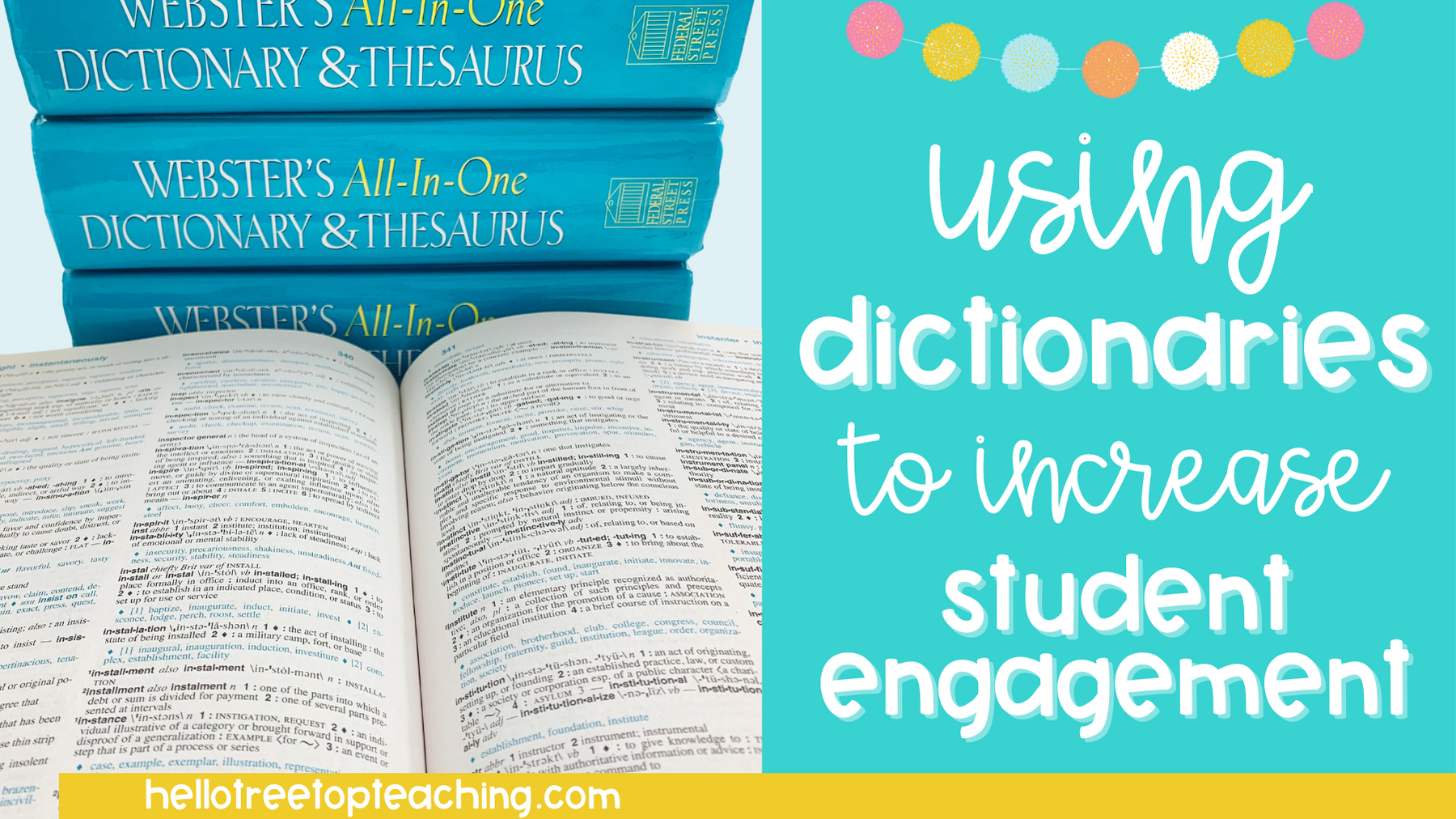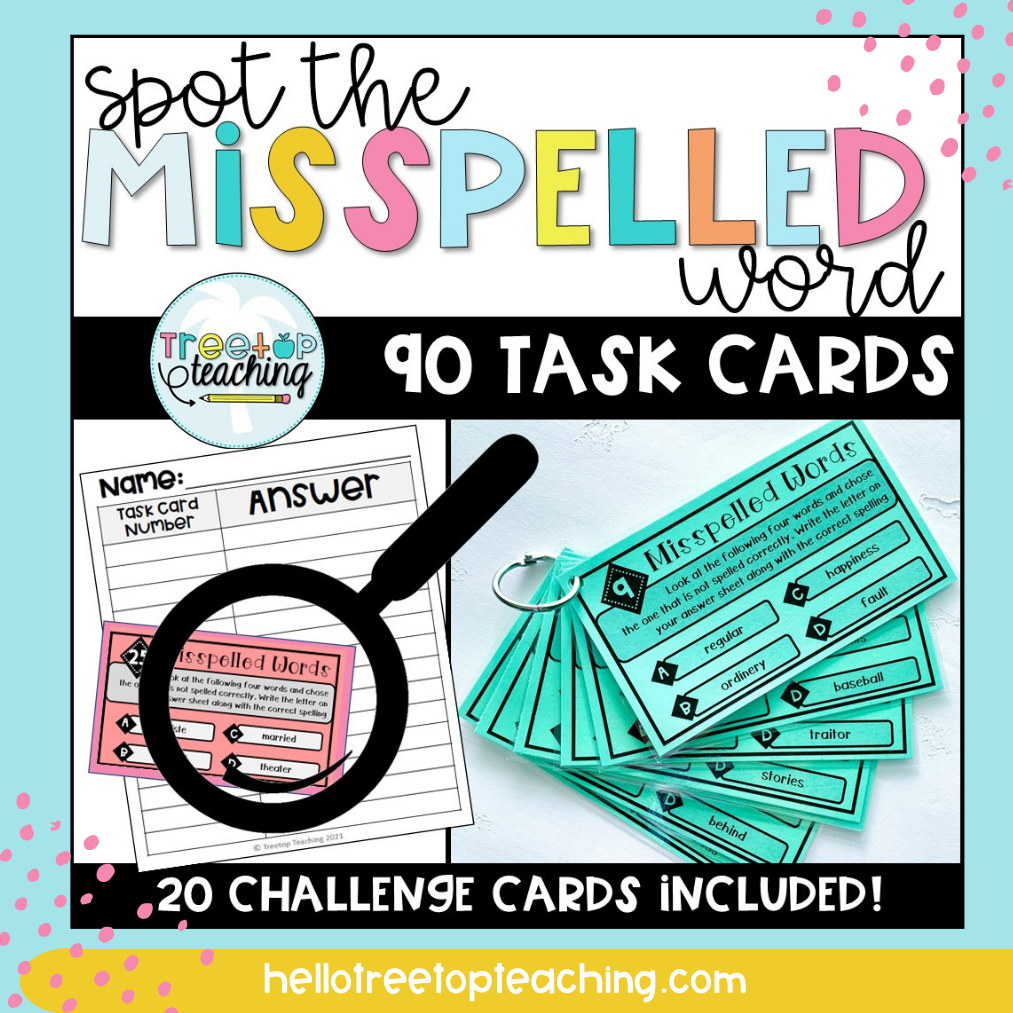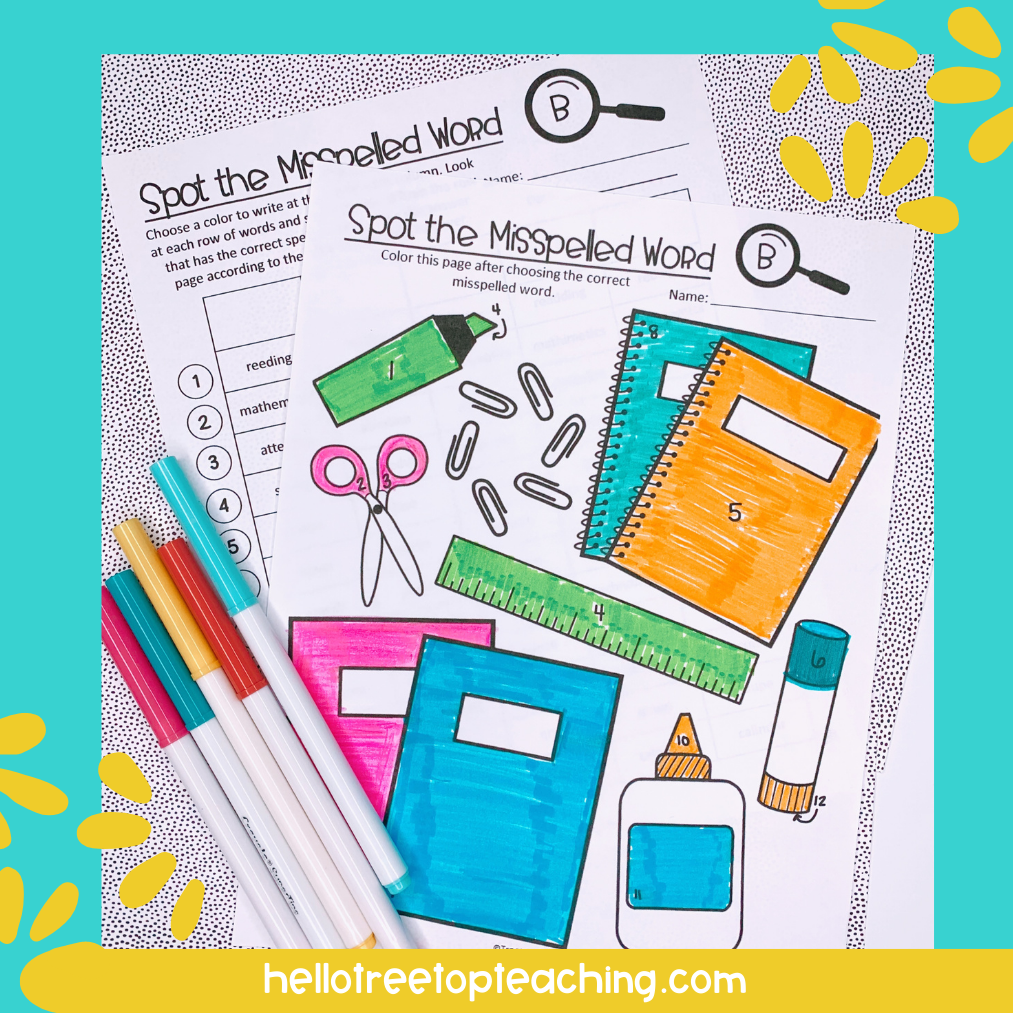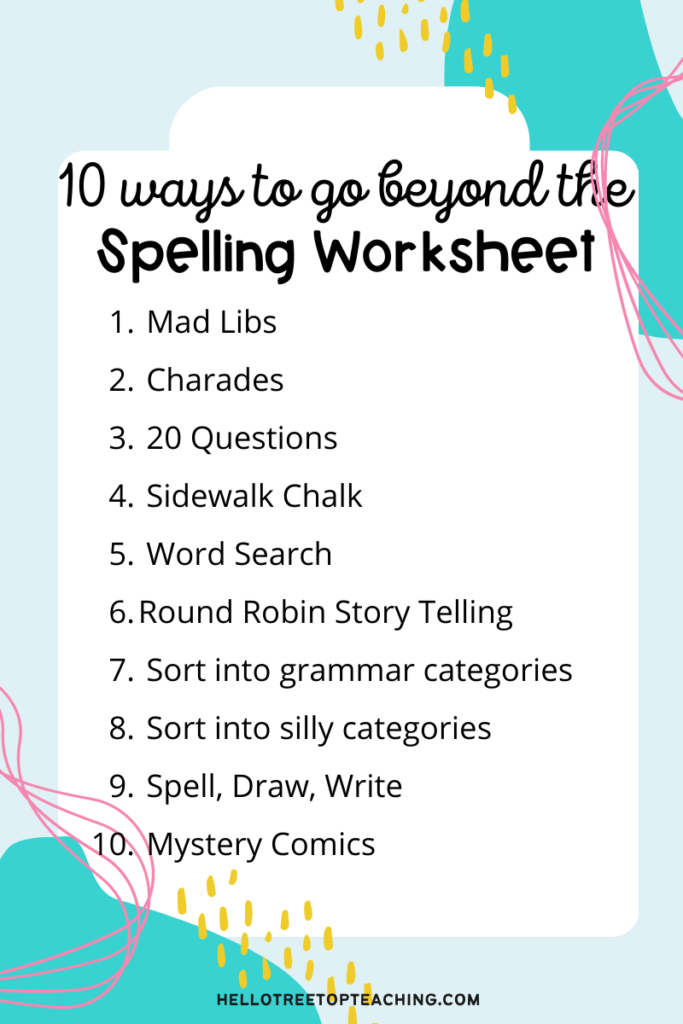Using the dictionary in your classroom doesn’t have to be boring- or outdated. It turns out there are quite a few ways to make the skill of using reference materials a lot more fun and constructive!
If you’re at all like me, you’ve had a class set of dictionaries sitting on the shelf for years. You may have inherited them from a previous teacher like me, or maybe you purchased them with high expectations, but find that you really aren’t using them as often as you thought.
Either way, I was sick of seeing my dictionaries just sitting on the shelf and taking up room. So a few years ago I sat down and came up with 4 ways to easily use the dictionaries in my classroom. These ways do not require any prior preparation. You can literally pull them off the shelf and get started.
- Find bonus words on a spelling test by splitting the dictionary to a random page
- Race to find words in a dictionary drill
- Spot the misspelled word activities
- Collect words on a list to use in their writing
Here is the dictionary and thesaurus I use in my classroom with a copy for each student.

Can’t They Just Google the Spelling?
Yes, I know that students, just like teachers, can look up most of the words they don’t know using Google. But I’m not doing this activity simply so they know how to look up words, but because learning how to use a reference material is important to brain development. A dictionary is ordered in a certain way, and when students have to look up words using a dictionary, they have to use critical thinking skills. They have to work within an ordered set of information, and this is incredible for brain development.
Using a Dictionary to Pick Spelling Test Bonus Words
This first idea came to me one day as I was sitting at the end of a spelling test trying to come up with bonus words for my students. I grabbed a dictionary off the shelf, opened to a random page, and picked a random word. I read them the definition, we talked about the word, and I found that the students even used this word in their conversations throughout the day. The next spelling test I had kids already raising their hand asking me if they could pick the bonus word. I knew students would naturally want to pick the easiest word on the page so I compromised.
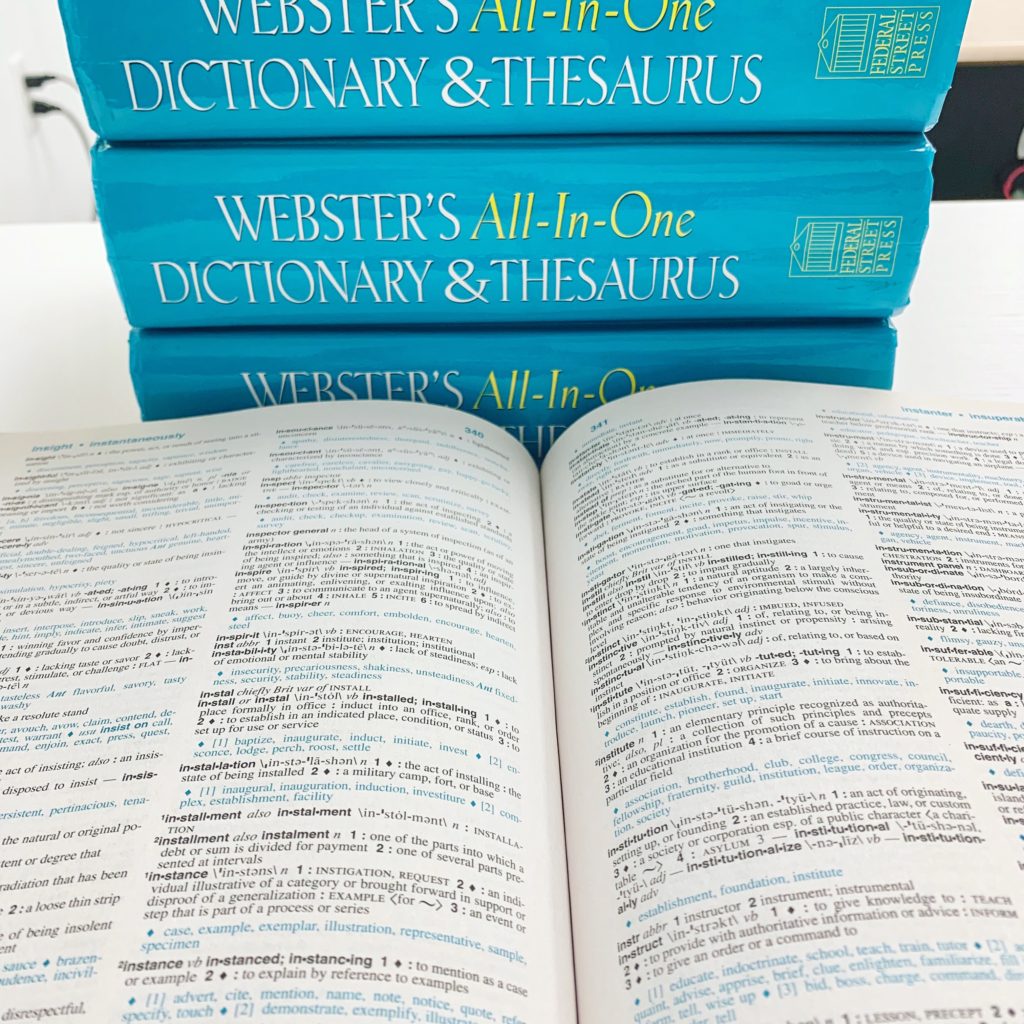
Now I have students take turns splitting the dictionary. This means I face the pages of the dictionary toward the student and allow them with their fingers to separate on a page that they want. They are not browsing through the dictionary, and they’re not using the word. They are just splitting the dictionary and choosing the page. Then I get to scan the page where they split and choose any word from that page that I would like.
These usually make the best bonus words because often they are ridiculous. I will read the word to the students and have them say it back to me. Next, I read them the definition and try my best to use it in a sentence. Not only is it challenging, but it’s often fun and silly as well.
Dictionary Drills
This next way is probably the favorite of my students. I mostly use this when we are defining new vocabulary words because they need the definitions. Originally, I would hand a dictionary to the students, and they would look up as many words as they could in the class time. The rest of the words they could look up using the computer at home. This way works fine; it just wasn’t particularly engaging to the students.
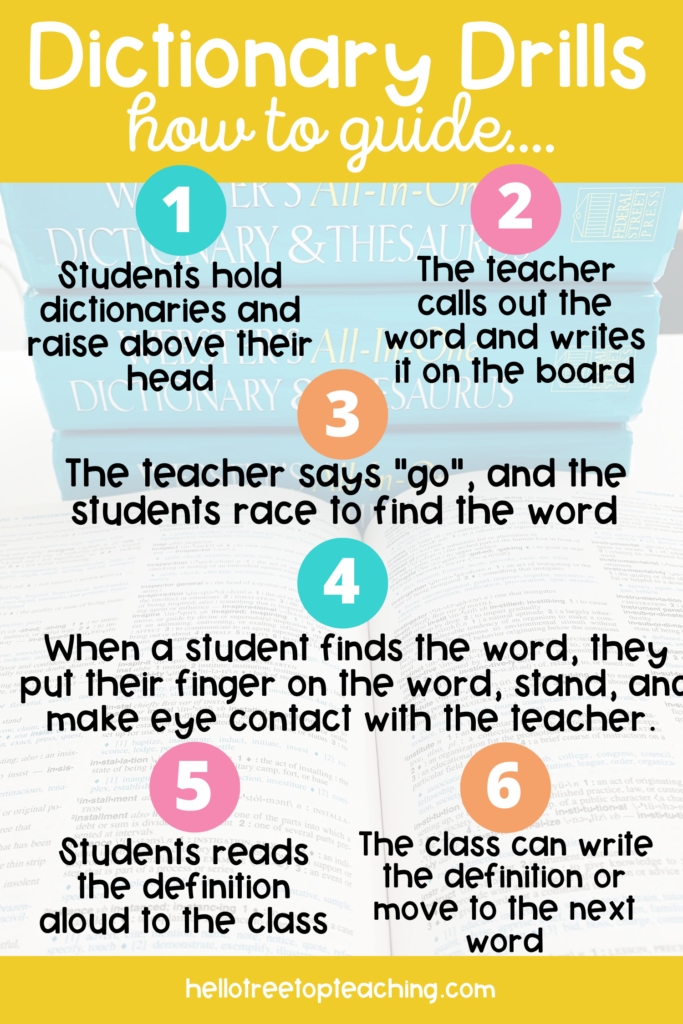
Then one day I decided to have the students race to find the words in the dictionary, and oh boy, talk about engagement! The students were so excited to look up the words and wanted to be the first one to stand up. I even had students going home and having their parents give them random words so that they could practice and get faster at looking up the words.
Rules of the Game
Here are the rules of the game, Dictionary Drills. I read the word two times to the students, and they repeat it back to me. They have to hold the dictionaries by the spine, and their elbow has to be resting on their desk. They must wait for me to say, “go” before they start racing to find the word. The first student to find the word stands up and says, “found it”. At that point they must make eye contact with me and have their finger on the word. When I ask them to read the definition, if it takes them longer than five seconds to find their place, I will choose the person who stood up second.
Originally I gave no reward for finding the word first besides being able to read the definition for the class to copy down. Now that I run a full classroom economy, (You can read more about that here), I award students just $1 of classroom cash if they find the word first.
Spot the Misspelled Word Activities
In these activities students are looking at a list of words and trying to either figured out the one that is spelled correctly or the one that is spelled incorrectly. There is a high engagement with BOTH.
Task Cards
These task cards have one hidden misspelled word and students have to figure out which word it is AND how to spell it. I usually pick a few from the deck and have them work on them in groups, stations, or a task card scoot around the room.
Color by Misspelled Word
This activity is always a favorite because it involves coloring. There is something about coloring in upper elementary and middle school that just gets them excited!
For this activity, students have to find the one word in each row that is spelled correctly which will reveal a coloring key. They then use that key to color the picture. I’ve got sets for every month of the year and a bundle if you’d like to grab them all at once!
Using a Dictionary to Build Vocabulary
If your dictionaries are like mine, they also have a thesaurus that offers synonyms for different words. In my dictionaries, the synonyms appear in blue so that the students can easily see other words that mean similar things.
When my students are working on a writing assignment, I challenge them to find words that I do not know. So when they are working on a writing piece, they often have a dictionary on their desk because they desperately want to find a word that their teacher doesn’t know the definition of.
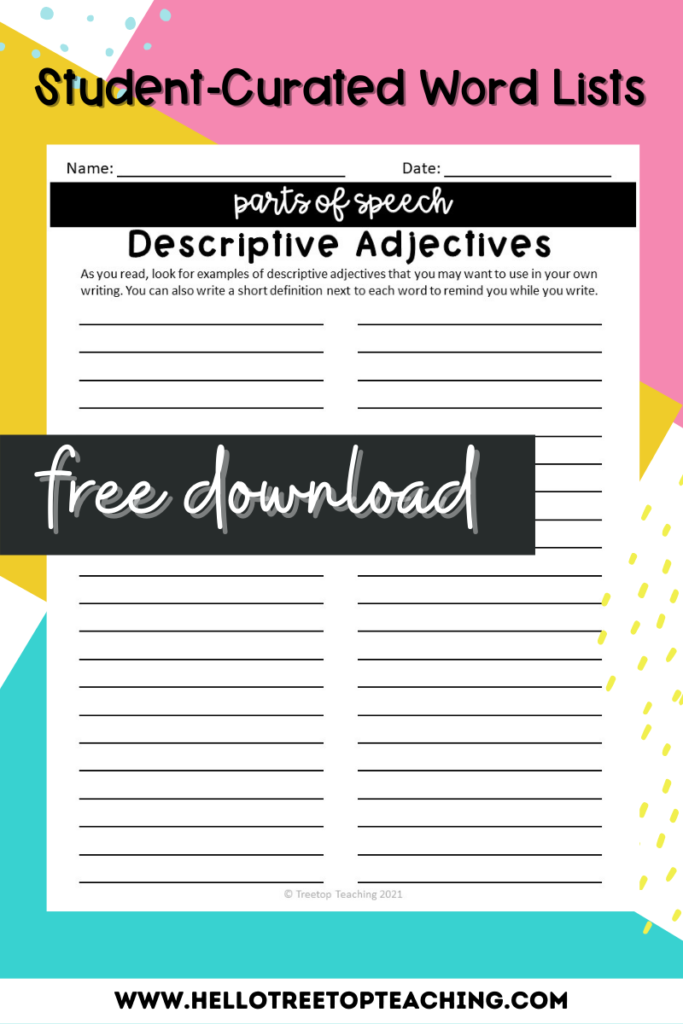
Students have found and collected some of the coolest words throughout the years. Not only will they include them in their writing pieces, but they often opt to include them in their own personal writing lists that I have students build throughout the year as they read. You can find a free copy of the writing lists in this download.
It’s the Process That’s Important
Dictionaries tend to get a bad rap as being boring, outdated, and unnecessarily difficult. But the truth of the matter is that dictionaries can actually be a lot of fun. Whether you are looking up bonus words for a spelling test or racing in a dictionary drill competition to find the word first, dictionaries up the engagement when it comes to spelling and vocabulary in your classroom. They also inspire students to discover better words and therefore build their working vocabulary. Using a reference material is more than just finding the definition of a word, but instead giving students an opportunity to learn how to find information in an organized set. It’s not so much the definition as it is the process of finding the definition and then using that word confidently.
Want More Spelling Ideas?
Click the image below to read more about how I spice up my spelling time with more than just the typical worksheets and spelling assignments!

